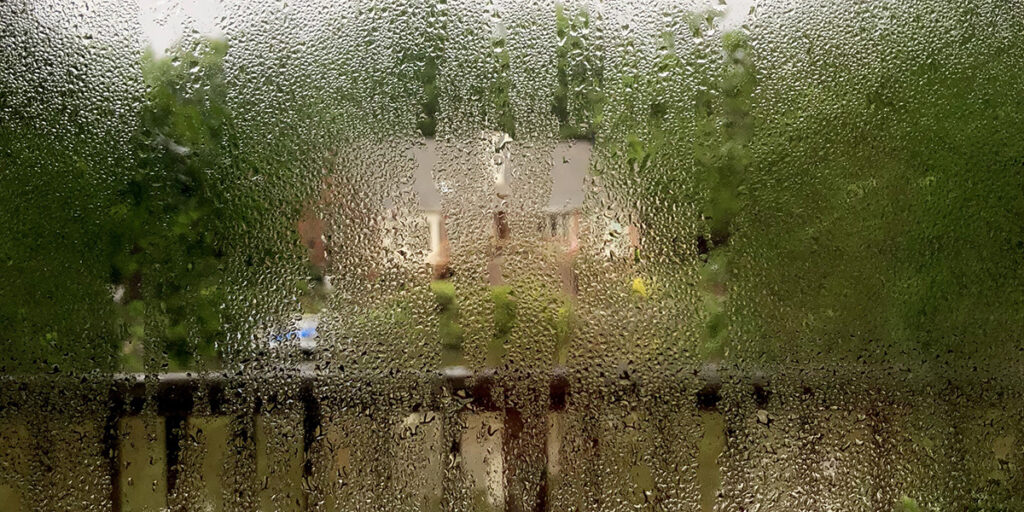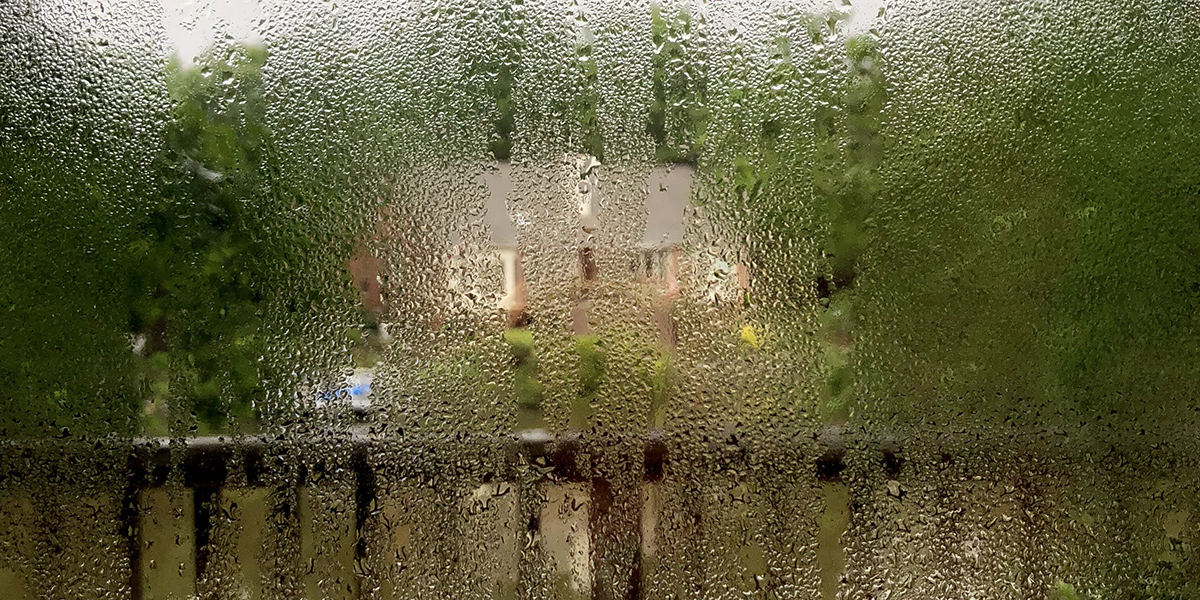You step into your home, expecting a wave of cool relief from the summer heat. But instead, you’re greeted by an uncomfortable blanket of humidity.
You wonder, “Why is my house so humid with the AC on? ” If this scenario sounds all too familiar, you’re not alone. Many homeowners battle the perplexing issue of indoor humidity, even with their air conditioning running full blast.
This blog will delve into the reasons behind this sticky situation and offer practical solutions to ensure your home remains a cool and comfortable haven. Discover why your AC might be missing the mark and learn how to reclaim your indoor comfort today. Stay tuned, because your comfort is just a few insights away.
Ac’s Role In Humidity Control
An air conditioner does more than cool your home. It plays a key role in controlling humidity. A good AC system removes excess moisture from the air. This helps keep your home comfortable and healthy. Yet, sometimes, your house feels humid despite the AC running.
Understanding how AC controls humidity can help. It allows you to make adjustments if needed. Let’s explore how your AC works to manage humidity levels.
How Air Conditioners Remove Moisture
Air conditioners pull warm air from your home. This air passes over cold evaporator coils. Moisture in the air condenses on these coils. It then drips into a pan and drains outside. This process reduces indoor humidity.
Size Matters: The Impact Of Ac Size On Humidity
An AC that is too big cools the home quickly. But it doesn’t run long enough to remove moisture. A correctly sized unit runs longer. This ensures better humidity control.
Fan Speed And Its Effect On Humidity
High fan speed can affect humidity removal. Fast fans move air quickly. This leaves less time for moisture to condense. Adjusting fan speed can help manage humidity better.
Maintenance And Its Role In Humidity Control
Regular AC maintenance is essential. Dirty coils or clogged drains reduce efficiency. They can hinder moisture removal. Routine check-ups ensure your AC performs well.
The Importance Of Thermostat Settings
Thermostat settings affect humidity levels. Setting the temperature too low can increase humidity. Find a balance to keep your home comfortable.
Common Causes Of Indoor Humidity
Many homeowners wonder why their house feels humid with the AC on. High indoor humidity can be uncomfortable and cause health issues. Understanding common causes helps in addressing them effectively.
Air Conditioner Size And Efficiency
An AC that’s too big cools the room quickly. But it doesn’t run long enough to remove humidity. The air feels damp. An undersized unit struggles to cool the space. It runs constantly, raising energy bills without reducing humidity. Efficient air conditioners remove moisture as they cool. Regular maintenance ensures optimal performance. Check filters and clean the coils for better efficiency.
Improper Ventilation
Ventilation plays a key role in reducing humidity. Proper air flow helps remove moist air from indoors. Blocked vents or inadequate ventilation trap humidity inside. Bathrooms and kitchens need exhaust fans. They help in removing steam and moisture. Ensure vents are clear and functioning. Open windows when possible to improve air exchange.
Impact Of Weather And Climate
Understanding why your house feels humid with the AC on can be puzzling. Weather and climate play a big role in this issue. Knowing how they affect your indoor environment helps in managing humidity effectively.
Seasonal Changes
During summer, high temperatures increase air moisture levels. Even with AC, humidity can rise indoors. The AC may struggle to remove all the moisture. In winter, colder air holds less moisture. But heating systems can dry the air, leading to discomfort. Each season brings different challenges for maintaining indoor humidity levels.
Geographical Factors
Your home’s location impacts indoor humidity levels. Coastal areas have naturally higher humidity due to proximity to water bodies. Homes in these regions often feel more humid. In contrast, desert regions experience dry air, reducing indoor humidity. Mountains can create unique microclimates, affecting humidity too. Each geographical area has distinct humidity challenges.

Credit: islandcomfort.com
Signs Of Excess Humidity
Ever wondered why your house feels like a sauna? Even with the AC on, it might still be humid. Recognizing signs of excess humidity is essential. Ignoring them can lead to discomfort and health issues. Let’s explore what these signs are and how they affect you.
Physical Symptoms
Excess humidity often shows up as condensation on windows. You might notice water beads or foggy glass. Peeling wallpaper is another clue. It signals trapped moisture. Musty odors are a clear sign too. They indicate mold growth. Also, sticky or clammy skin is a giveaway. It means the air is too moist. Feeling these symptoms? Your home may have high humidity.
Health Implications
Excess humidity can impact health. It creates a breeding ground for mold and dust mites. These allergens can trigger asthma. They may also cause allergic reactions. You might experience coughing or sneezing. High humidity can worsen respiratory issues. It makes breathing difficult. It can also lead to skin problems. Dryness or rashes might occur. Keep humidity levels in check for better health.
Solutions To Reduce Indoor Humidity
Ever wonder why your house feels humid even with the AC running? Common issues include poor ventilation and AC maintenance. Reducing indoor humidity can be as simple as using a dehumidifier, sealing leaks, or ensuring proper airflow. Regular AC check-ups help maintain optimal humidity levels.
Is your house feeling sticky even with the AC running? You’re not alone. This can be a common issue, especially in humid climates. Luckily, there are practical solutions to tackle this problem. Let’s dive into some effective strategies to reduce indoor humidity and make your home more comfortable.Ac Maintenance And Upgrades
Regular maintenance of your AC unit is crucial. A dirty filter can restrict airflow, making your AC less effective at removing humidity. Have you checked your AC filter recently? Upgrading to a more efficient system could also help. Newer models often come with advanced humidity control features. It’s an investment worth considering if your current unit is outdated.Dehumidifiers And Their Benefits
Dehumidifiers can be your best friend in the battle against humidity. They work by pulling excess moisture from the air, creating a more comfortable environment. You might be surprised at how much moisture is in the air. A small dehumidifier can make a big difference in a single room. For larger spaces, consider a whole-house dehumidifier.Improving Ventilation
Good ventilation is key to reducing humidity levels. Is your home properly ventilated? Opening windows and doors can help, but that’s not always practical. Exhaust fans in kitchens and bathrooms are also essential. They help remove excess moisture generated by cooking and showers. Additionally, consider using a ceiling fan to improve air circulation throughout your home. By implementing these solutions, you can enjoy a more comfortable and less humid living space. Which step will you try first?
Credit: toplineair.com
Preventive Measures For Future
High humidity at home with the AC on may indicate poor ventilation or AC issues. Ensure windows are sealed and AC is maintained regularly. Check for clogged filters and clean them to improve air quality.
Dealing with a humid house despite having the AC on can be frustrating. Fortunately, there are preventive measures you can take to avoid humidity issues in the future. By focusing on regular maintenance and improving home insulation, you can create a comfortable environment all year round. Let’s dive into some practical steps you can implement.Regular Hvac Checks
Regular HVAC maintenance is crucial. It not only helps in extending the life of your system but also ensures its efficiency. Schedule professional check-ups at least twice a year. Ensure the filters are clean and the ducts are free of blockages. Consider setting reminders for these checks. It’s easy to forget, especially during busy times.Home Insulation Tips
Proper insulation is your ally against unwanted humidity. Start by inspecting windows and doors. Are there drafts? If so, use weather stripping or caulk to seal them. Think about your attic and walls. Is the insulation adequate? Upgrading it might be a wise investment. Reflect on your experiences. Have you noticed certain rooms are more humid than others? This could indicate areas needing better insulation. Taking these steps now can save you from discomfort later. What changes can you make today for a more comfortable tomorrow?Professional Help And Advice
Your home should be your sanctuary, a place where comfort meets peace. But when high humidity invades despite running the AC, it can quickly become a source of frustration. Seeking professional help and advice can often be the most effective way to restore balance to your indoor climate. With the right guidance, your home can return to its intended state of comfort and tranquility.
When To Consult Experts
Is your AC running non-stop, yet your home feels like a sauna? This could be a sign to consult a professional. While it might seem like a simple maintenance issue, underlying problems could be affecting your system’s efficiency.
Look for signs beyond just humidity. If you notice unusual noises or higher energy bills, these can be indicators that something’s off. An expert can diagnose issues that aren’t visible to the untrained eye.
Feeling unsure about when to call in the pros? If your efforts to dehumidify with DIY methods aren’t working, it’s time to bring in the experts. They have the tools and experience to provide a lasting solution.
Choosing The Right Services
Choosing the right service is crucial to resolving your humidity issues effectively. Not all HVAC professionals are created equal, so doing your homework is essential. Start by checking reviews and ratings online to gauge their reputation.
Ask your friends or neighbors if they’ve had similar issues. Personal recommendations can be valuable and help you find trustworthy professionals. When reaching out, inquire about their experience with your specific problem to ensure they’re equipped to help.
Be clear about your expectations. Discuss potential solutions and costs upfront to avoid surprises. A reliable service provider will offer you transparency and a clear plan to tackle the humidity in your home.
Feeling overwhelmed by the choices? Consider scheduling consultations with a couple of professionals. This way, you can compare their insights and choose the one that resonates with you. Remember, the right expert can make all the difference in restoring your home’s comfort.

Credit: toplineair.com
Frequently Asked Questions
Why Is My Ac Not Reducing Humidity?
The AC might be too large or have a faulty dehumidifier. Proper maintenance is crucial.
Can A Dirty Ac Filter Increase Humidity?
Yes. Dirty filters restrict airflow, causing humidity to rise. Regular cleaning helps maintain balance.
Does High Humidity Mean Ac Problems?
Not always. It can indicate improper AC size or ventilation issues. Check both for solutions.
How Can I Reduce Indoor Humidity With Ac?
Use a dehumidifier or adjust the AC settings. Ensure good home ventilation.
Is It Normal For Ac To Make My House Humid?
No, it’s not. AC should reduce humidity. Check for system issues or maintenance needs.
Conclusion
Humidity problems in homes can frustrate anyone. ACs should cool and dry. If humidity persists, it’s time to check things. Look at filters, vents, and leaks. Simple fixes might solve it. Or, call a pro for help. A comfortable home feels good.
It’s important to stay cool and dry. Regular maintenance helps avoid issues. Keep your living space pleasant. You deserve it. Remember, a little care goes a long way. Stay proactive and enjoy a cozy home.





